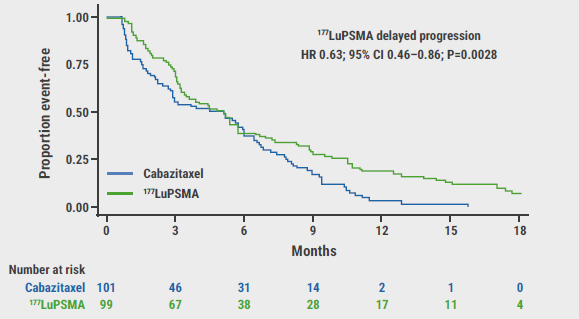The WRITE Symptoms tool - short for Written Representational Intervention to Ease Symptoms - guides patients to reflect on how they experience a symptom: what causes it, what makes it worse, how it feels, how it impacts their daily life and how they've tried to manage it.
It was developed by a University of Pittsburgh team led by nurse-scientist Dr. Heidi Donovan.
"Women with ovarian cancer experience an average of 14 concurrent symptoms, so symptom management is very complex. It can be overwhelming for patients and challenging for providers, who may not have time to address these symptoms in a typical 15-minute appointment. That's why we developed a symptom management approach outside of a normal clinical setting, from the comfort of a woman's own home," Dr. Donovan said in a university news release.
"The WRITE approach blends health psychology with educational principles. The process of talking or writing about a symptom in a systematic way can help women understand which management strategies work and which don't," she explained.
"Using evidence-based symptom management techniques, we then help patients develop strategies for addressing target symptoms. Later, patients review the strategies and assess if changes need to be made. It's a very iterative process," Dr. Donovan added.
The researchers tested the WRITE Symptoms online tool in 497 women (mean age, 59 years) with recurrent or persistent ovarian, fallopian tube or primary peritoneal cancer. All participants completed surveys about symptom burden, symptom control and quality of life and picked three target symptoms they wanted to gain better control over.
They were then randomly allocated to one of three groups. One group completed a nurse-led version of the WRITE intervention, in which nurses guided patients through the process via an asynchronous web-based message board. The second group directed themselves through a fully computer-mediated version of WRITE, while the third group received enhanced usual care but did not complete WRITE interventions and served as a control group.
Both symptom burden and quality of life improved significantly over time (P<0.001) for all three groups, the researchers report in the Journal of Clinical Oncology. However, women in both WRITE intervention groups showed significantly greater improvements in their ability to control symptoms after eight weeks compared with peers in the control group.
To see the same benefits in both the nurse-led and self-directed versions of the program is "really powerful," Dr. Donovan commented in the release.
"We also found that the self-led program was much more efficient. People were able to develop a symptom management plan in about 30 minutes compared to a few weeks with the asynchronous, nurse-led version," she noted.
The researchers are now developing a mobile app that will train family members and other caregivers to help their loved ones with ovarian cancer better manage symptoms. For women who need extra support, there will also be an option to connect with providers.
This research was funded by the National Institute of Nursing Research and the National Cancer Institute.
SOURCE: https://bit.ly/361tU2G Journal of Clinical Oncology, online February 7, 2022.
By Reuters Staff
Posted on
Previous Article
« 10-year leukemia remissions credited to CAR T-cell persistence Next Article
Certain antihypertensive meds might help prevent cognitive decline »
« 10-year leukemia remissions credited to CAR T-cell persistence Next Article
Certain antihypertensive meds might help prevent cognitive decline »
Related Articles
March 24, 2021
Better allocation of research dollars needed

© 2024 Medicom Medical Publishers. All rights reserved. Terms and Conditions | Privacy Policy

